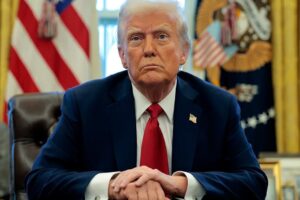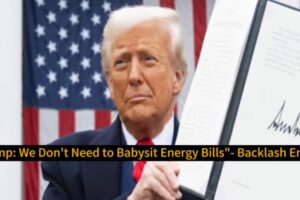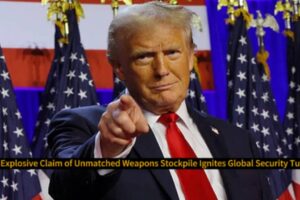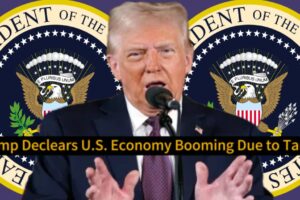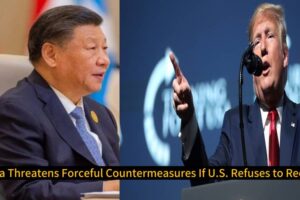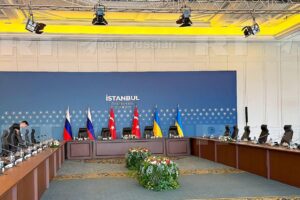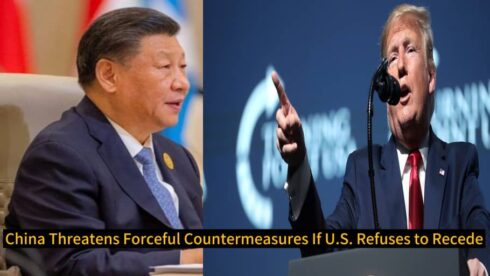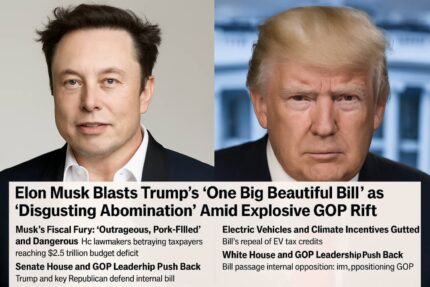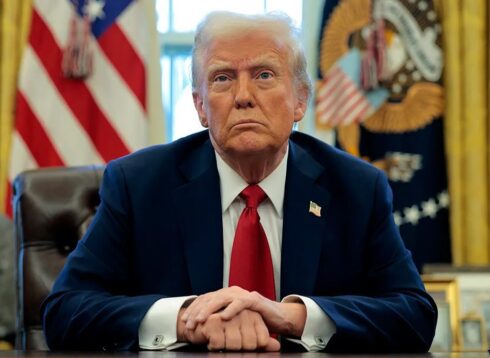China’s has issued a formal accusation against the United States, claiming Washington’s latest trade measures violate the bilateral trade agreement signed in 2020. The dispute erupted following newly imposed U.S. restrictions targeting advanced technology imports and Chinese biotech components. China’s Ministry of Commerce described the move as “a severe breach of negotiated obligations” that threatens economic stability between the two superpowers.
China contends that these measures were introduced without prior consultation, breaching stipulations tied to tariff transparency and fair market access. Officials in Beijing argue that the United States is exploiting regulatory frameworks to suppress China’s rise in artificial intelligence and green energy sectors. The complaint represents one of the sharpest escalations in trade discourse since the height of global supply chain tensions in the early 2020s.
China Threatens “Forceful Countermeasures” if U.S. Refuses to Recede
China has vowed a strong retaliatory response should the United States fail to withdraw its restrictive trade actions. In a state-issued broadcast, officials warned that “all options are on the table,” including economic sanctions, rare earth export controls, and broader limitations on American corporations operating within Chinese borders. The language marked a dramatic shift from previous measured diplomacy.
China’s policymakers are currently meeting behind closed doors to finalize a suite of potential countermeasures, ranging from legal action at the World Trade Organization to enhanced scrutiny of U.S. investments in mainland tech and energy sectors. Experts anticipate a multi-tiered strategy designed to pressure Washington economically without alienating key third-party trading partners.
China’s Warning Sparks Global Market Jitters and Economic Uncertainty
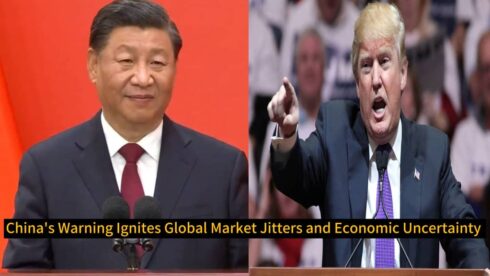
China’s sharp rhetoric has already shaken global markets, triggering an immediate drop in the Shanghai Composite Index and causing ripple effects across European and American exchanges. The yuan slipped to a six-month low, while tech-linked commodities like lithium and semiconductor-grade silicon experienced unusual volatility amid fears of potential export controls.
China’s dominant position in global raw material supply chains—including over 70% of rare earth production—adds weight to its threats. Multinational companies with high exposure to the Chinese market, such as Tesla, Intel, and Qualcomm, are reportedly activating crisis protocols and reevaluating their supply chain dependencies as uncertainty mounts.
China Blames U.S. for Destabilizing Trade Norms and Economic Balance
China has criticized the U.S. government for what it describes as a pattern of economic coercion disguised as strategic policy. According to Chinese officials, the recent restrictions fall in line with a broader attempt by Washington to reengineer global supply chains in its favor—often at the cost of international rules-based commerce. The Ministry of Foreign Affairs labeled these actions as “economic bullying under the banner of security.”
China’s trade experts argue that such disruptions to negotiated trade frameworks erode global confidence and damage institutions like the World Trade Organization. They also point out that these U.S. moves encourage other countries to adopt similarly aggressive trade positions, accelerating the fragmentation of global commerce into politicized, competing blocs.
China’s Analysts Warn of an Unfolding “Trade War 2.0”
China’s top policy institutes have begun referring to the conflict as a “second-generation trade war,” one rooted not in traditional tariffs but in tech domination, resource nationalism, and strategic autonomy. This marks a stark evolution from earlier disputes, now involving data governance, chip sovereignty, and critical infrastructure access.
China sees the battle as an ideological showdown over who will lead in emerging industries. Think tanks such as the China Academy of International Trade say the U.S. actions reflect deep anxiety about China’s accelerating innovation in AI, aerospace, and renewables. The framing is no longer economic efficiency versus protectionism, but strategic survival versus systemic exclusion.
China Urges Multilateral Action as Global Pressure Builds
China has called on international institutions and neutral trading partners to intervene diplomatically before tensions escalate into long-term economic conflict. Beijing has formally invited the European Union, ASEAN, and BRICS nations to participate in a “global economic stability dialogue,” positioning itself as a champion of open markets and multipolar governance.
China argues that it remains committed to negotiated solutions but will no longer tolerate unilateral moves that threaten its national interests. With the World Trade Organization struggling to mediate between great powers, observers believe China may push to reshape or bypass traditional trade mechanisms altogether—building alternative coalitions that can challenge U.S.-led frameworks and preserve its global economic ambitions.



